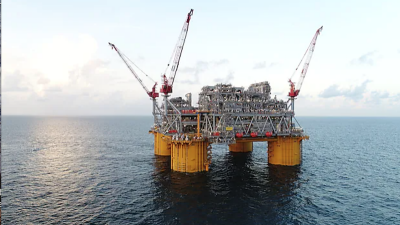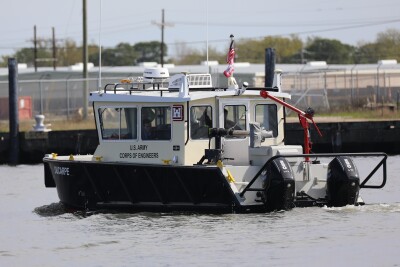Fulfilling a consistent theme of the Trump administration, Secretary of the Interior Ryan Zinke formally announced plans to allow new offshore oil and gas exploration in almost all U.S. waters.
The plan would reverse one of the final acts of former President Barack Obama, when he issued an order blocking new leases and exploration on the Outer Continental Shelf (OCS) in Arctic, eastern Gulf of Mexico and East Coast waters.
“This is a clear difference between energy weakness and energy dominance,” said Zinke in a press conference Jan. 4. “We’re embarking on a new path for energy dominance in America, particularly on offshore.”
Offshore industry advocates praised the announcement, as they did in April when President Trump directed Interior officials to begin working on a plan.
“The energy resources on the OCS are vital to the nation’s economic prosperity, and polls have repeatedly shown that most Americans want more energy to be produced domestically, including looking for more oil and natural gas resources off our shores,” said Randall Luthi, president of the National Ocean Industries Association. “Yet, the United States has severely restricted oil and gas exploration off our shores, even as Canada, Mexico, Brazil, Norway, Russia and countries in Africa are actively exploring their own offshore areas.”
Environmental groups, who lobbied Obama hard for declaring larges parts of the OCS off-limits, had been stepping up criticism for weeks in anticipation of Zinke’s formal announcement. Diane Hoskins, campaign director for the group Oceana that has worked closely with coastal tourism and fishing industry groups to ward off oil and gas development, called the administration’s plan “a radical offshore drilling free-for-all.”
But as Zinke and Luthi noted, the government is only taking a step in a multi-year process, with probably 18 months before a new OCS leasing plan can be finalized.
And the Trump administration is facing opposition from more than environmental groups. When the prospect of East Coast leasing was debated during the Obama years some state politicians – particularly in Virginia with its big maritime and shipbuilding industry – saw a potential economic opportunity.
But since then state governors, including Republicans, have lined up against drilling, seeing in it unacceptable risk to other coastal economic and environmental interests. Florida Gov. Rick Scott is one.
“I have already asked to immediately meet with Secretary Zinke to discuss the concerns I have with this plan and the crucial need to remove Florida from consideration,” Scott said via Twitter as Zinke was announcing the move, which would bring exploration into the eastern Gulf.
Other Gulf politicians see an opportunity to someday bring back jobs in the battered offshore industry, depressed for years and so far unable to break past continued surges in supply from onshore shale producers. Rep. Steve Scalise, R-La., the House majority whip, applauded the plan.
“With increased exploration and production in the Gulf and beyond, Louisiana will see more jobs and continue to receive the revenue sharing that is vital to rebuilding our coast.”





